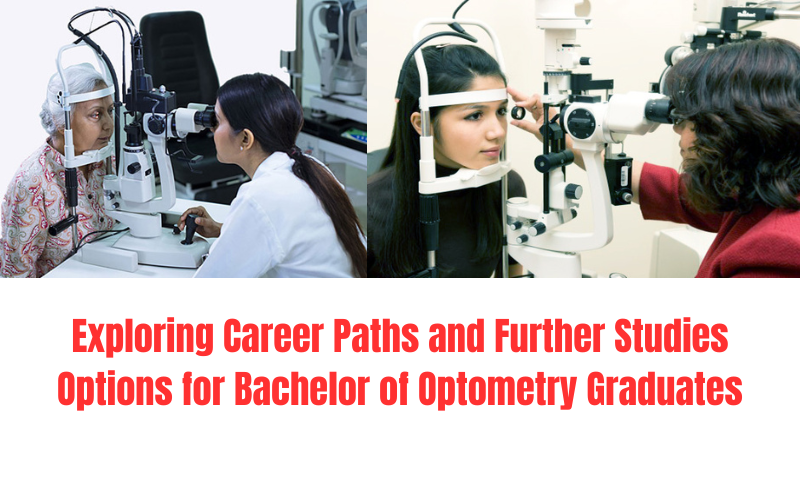
Optometry is a healthcare profession that involves the examination, diagnosis, treatment, and management of disorders related to the eyes and vision. A Bachelor of Optometry (B.Optom) is a four-year undergraduate degree program that prepares students for a career in optometry.
After completing a Bachelor of Optometry, graduates have several options for further studies or career options. In this blog, we will explore some of the options available to B.Optom graduates.
1. Master of Optometry:
One of the most popular options for B.Optom graduates is to pursue a Master of Optometry degree. This advanced degree program provides students with the opportunity to specialize in a particular area of optometry, such as pediatric optometry, contact lenses, low vision, or neuro-optometry. A Master of Optometry degree can lead to better career prospects, higher salaries, and more opportunities for research and academic positions.
2. Fellowship in Optometry:
B.Optom graduates can also choose to pursue a fellowship in optometry. This program provides specialized training in a specific area of optometry and is designed to enhance a graduate's skills and knowledge. Fellowships are usually short-term, and can lead to better job prospects and higher salaries.
3. Career Options:
B.Optom graduates can choose from a variety of career options after graduation. Some of the popular career choices include:
- Optometrist: Optometrists are healthcare professionals who specialize in diagnosing and treating vision-related problems. They work in private practices, hospitals, and clinics.
- Contact Lens Specialist: Contact lens specialists are optometrists who specialize in fitting patients with contact lenses. They work closely with patients to ensure that their lenses are comfortable and provide optimal vision.
- Low Vision Specialist: Low vision specialists work with patients who have vision impairments that cannot be corrected with glasses or contact lenses. They help these patients to maximize their remaining vision and improve their quality of life.
- Vision Therapist: Vision therapists work with patients who have vision-related problems that are caused by neurological or developmental disorders. They use a variety of techniques and exercises to improve their patients' visual skills.
- Researcher: B.Optom graduates can also choose to work in research and development, conducting studies and developing new products and treatments for vision-related problems.
B.Optom graduates have a variety of options available to them for further studies and career choices. Pursuing a Master of Optometry or fellowship in optometry can provide graduates with specialized training and better job prospects. Alternatively, graduates can choose from a range of career options, including optometrist, contact lens specialist, low vision specialist, vision therapist, and researcher. Whatever the choice, a career in optometry can be rewarding and fulfilling, with opportunities for personal and professional growth.